2015 by the Board of Trustees
of the University of Illinois
All rights reserved
Manufactured in the United States of America
C 5 4 3 2 1

This book is printed on acid-free paper.
Some of the material used in this book has been used previously in three articles coauthored with Fransjohan Pretorius. The articles are Of Gold and Iron: Boer Collaboration in the Winburg District, South African Historical Journal 63, no. 2 (2011): 27794; Kent gij dat volk: The Anglo-Boer War and Afrikaner Identity in Postmodern Perspective, Historia 56, no. 2 (2011): 5972; and Black Resistance in the Free State during the Anglo-Boer War, Historia 58, no. 1 (2013): 117.
Library of Congress Cataloging-in-Publication Data
Boje, John.
An imperfect occupation : enduring the
South African war / John Boje.
pages cm. (The history of military occupation)
ISBN 978-0-252-03956-0 (hardcover : alk. paper) ISBN 978-0-252-09765-2 (e-book)
1. South African War, 1899-1902,Occupied territories. 2. Civil-military relationsSouth AfricaWinburg. 3. Civilians in warSouth AfricaWinburg. 4. Winburg (South Africa)History. I. Title. II. Series: History of military occupation.
DT1896.B66 2015
968.0481dc23 2015013223
Preface
THIS IS A BOOK ABOUT THE Winburg district in the erstwhile Orange Free State at the time of the South African War (18991902) and how its residents experienced the tightening grip of British military occupation.
Why Winburg?
On a visit to Winburg some ten years ago, the unofficial guide, Stoffel van der Linde, showed me a metal post outside the municipal offices and said that it marked the central point of the Free State. I doubt it somehow, but that post may serve as a metaphor for the centrality of Winburg in the history of the Free State, of its typicality as a microcosm of rural towns and districts throughout the Free State, and of its uniqueness in certain respects. It was here that more than a thousand Voortrekker wagons, bringing white settlers into the interior, concentrated in 1837. Winburg was the first town proclaimed in the Free State. It was the center of resistance during an earlier period of British rule, the Orange River Sovereignty (184554), and its famous sons included generals Koos de la Rey and A. P. Cronj, as well as President M. T. Steyn. As a fairly cosmopolitan town, where English was widely spoken, amid a conservative, almost exclusively Afrikaans-speaking countryside, the town and district were typical of the Free State as a whole. Yet that solitary post may also speak of Winburg's uniqueness, for the Orange River Colony Volunteers, a Boer formation of the British army, flourished here, as did Bergh's Scouts, a black corps under Boer officers fighting on the side of the British.
Actually, my acquaintance with Winburg goes much further back. My four grandparents all came from the Winburg district and they had very different stories to tellor, more commonly, not to tellabout enduring the South African War. My paternal grandfather, we used to say when we were children, spent the war hiding under his bed. Where we got this story from I don't know, but he came from the Cape Colony and had to be careful. Colonials who involved themselves on the Boer side were guilty of treason and some were even executed. His wife spent time in the Winburg concentration camp, where she lost a son, my uncle Lukas, whom I never knew, and adopted an orphan girl, my aunt Joey, who later married a former British soldier. My maternal grandfather fought in the Winburg commando until the fall of Bloemfontein, when he opted out of the war. Afterward he was a POW in Simonstown, in contrast to his elder brother, who, according to his own account, gave the British a hard time on the battlefield and later gave his wife a hard time by refusing to return from exile in Bermuda, because that would entail acknowledging Edward VII as his lawful sovereign. For her part, my maternal grandmother spent many months on the open veld evading capture and internment. So at a time when the establishment discourse was of a homogenous nation fighting heroically to the bitter end, I enjoyed bewildered childhood intimations of a divisive, nasty, multifaceted war.

The ex-Tommy and his Boer bride: Charles Thorold and Louise Josephine Boje.
What I have set out to do in the following pages is to get away from the grand narratives so that the real voices of ordinary people might be heard, ordinary people like my grandparents, but also the disregarded black people of the Winburg district, articulating their varied responses to the complexities of living with invasion, gradual subjugation, and lingering occupation.
Many people have helped me in a variety of ways, in particular Anthony, Edward, and Ashley Boje; Roy and John Devenish; Pam Gebhard; Ingrid Booysen; Etna Labuschagne; and Peter Morey. I am grateful to them and to Albert Grundlingh, who allowed me access to his B.A. Hons. mini-dissertation on Senekal, and to Ami Maree for the wonderful scoop of her great-grandfather's Winburg concentration camp diary.
It has been a great pleasure working with the staff of the University of Illinois Press, who have been unfailingly friendly and generous in all of their dealings with me. Particular thanks are due to Jill R. Hughes, a most meticulous and insightful copyeditor.
An Imperfect Occupation is based on a doctoral thesis, Winburg's War: An Appraisal of the Anglo-Boer War of 18991902 as It Was Experienced by the People of a Free State District, submitted to the University of Pretoria in 2009. It gives me joy to dedicate the final product to Fransjohan Pretorius, my mentor, and to Elizabeth, my love.
Introduction
ON THE EVE OF THE South African War of 18991902, Winburg, located approximately sixty-five miles northeast of Bloemfontein, was the chief town of a large district, bounded by the districts of Bloemfontein, Thaba Nchu, and Ladybrand to the south; Ficksburg and Bethlehem to the east; Lindley and Kroonstad to the north; and Hoopstad and Boshof to the west. The Winburg district comprised five wards: Winburg, Vetrivier, Zandrivier, Taaiboschspruit, and Onder-Wittebergen. It included two towns, Winburg and Senekal, and the villages of Ventersburg and Smaldeel. The key administrative officials in the wards were the field cornets, who served as intermediaries between the government and the citizenry. Their office included a multitude of functions, both civil and military. They were justices of the peace, road supervisors, stock inspectors, proclaimers of the law, and military officers, all rolled into one. By the end of the nineteenth century there was a considerable measure of job diversification, but field cornets continued to operate across a wide spectrum of responsibilities. With respect to their civil functions, the field cornets of the Winburg district were responsible to the landdrost (magistrate/district commissioner) or to the assistant landdrost in Senekal; in their military role they answered to the district commandant, Marthinus Prinsloo.


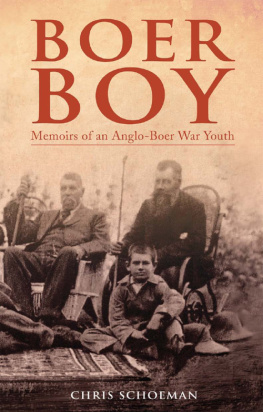
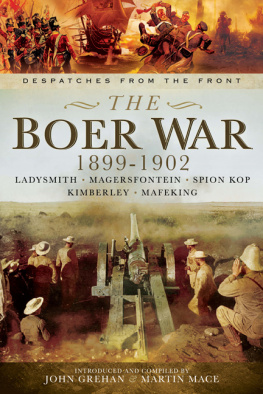
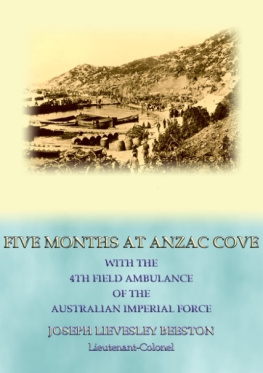
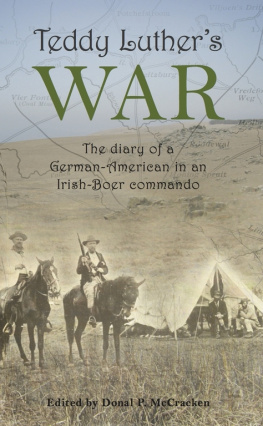
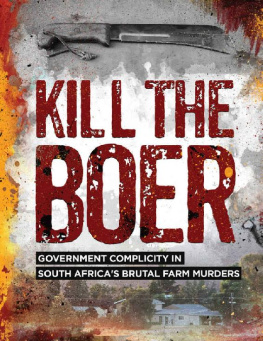
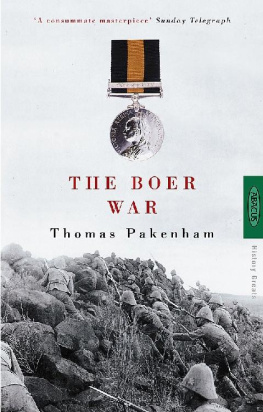
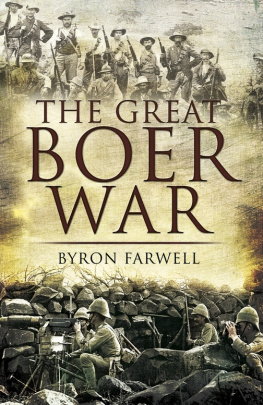
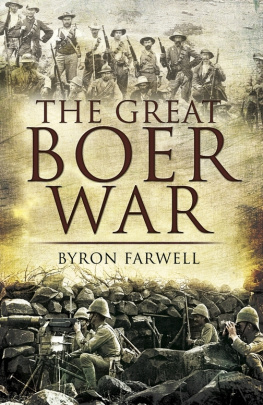


 This book is printed on acid-free paper.
This book is printed on acid-free paper.